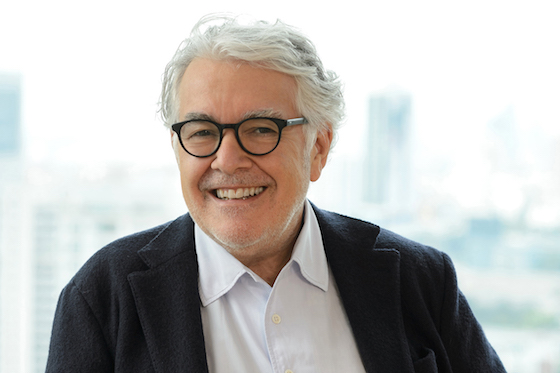“Jokingly and internally, we’re calling it Six Senses version three,” says Neil Jacobs, CEO of Bangkok-based Six Senses Hotels Resorts Spas. IHG’s US$300 million purchase from Pegasus Capital Partners closed on February 13 and puts Six Senses at the top of its luxury portfolio. Jacobs sat down with HOTELS in Singapore shortly after the deal, which doesn’t include any real estate, closed.
HOTELS: How has the experience been?
NEIL JACOBS: It’s really exciting in a lot of ways. And I think that even though we’d never actually thought that when Pegasus exited that it would necessarily be to a large strategic hotel company, the experience with IHG has been fantastic. (IHG CEO) Keith Barr has been particularly eloquent about how he doesn’t want to change stuff, and that the reason they wanted to acquire us was because of who we are, and the ethos and the value set that we have, and our focus on wellness and sustainability. And his point of view continues to be, ‘Why would we want to change any of that?’… It’s going to be really helpful to have a lot of the power that they bring to the table, particularly in areas of distribution.

H: Will you be part of a loyalty program?
NJ: We haven’t figured that (out yet)… We’ve got to figure out what’s the best way that gives IHG some benefit around that, without sinking the little Six Senses hotels or eroding rate. But there’s no question that they can bring huge value to who we are and make us or contribute to us doing more business, being more efficient.
H: What is your current pipeline, and do you see that ticking up in velocity?
NJ: Part of why IHG was interested in us is because our pipeline is unbelievable. When you’ve got 18 hotels, to add another six is unbelievable, right? Even alone without IHG, we would be at 40 hotels (globally) in three to four years just with what we’ve got.
H: Do you see Six Senses complementing or strengthening IHG’s wellness offerings, in the way that Kimpton, for instance, has a strong F&B component?
NJ: We have a very strong wellness and sustainability platform, probably stronger than most, particularly given the size we are. But we do have some scale with it and we’re able to drive it. And we love to create. We have this incubator of innovators around wellness and sustainability… We think there’s great potential to provide some of that skill set and experience to other areas of the IHG world if they want it. We’ve got to get through this preliminary transition and figure all this out. But certainly, that’s also a very exciting possibility.
H: Where would you like to see Six Senses develop?
NJ: I’d like to be in Shanghai and Beijing. We love clusters… We’re opening later this year in Israel in the Negev Desert, which is going to be an extraordinary project. So now I’m focused on (whether) I need to be in Tel Aviv or Jerusalem or north of Tel Aviv. We’re just opening (five lodges) in Bhutan as we speak. We’re looking at the same in Myanmar. We just signed an LOI in the Galápagos. I’ve always been interested in doing a bit of a circuit in Ecuador because Ecuador has mountains and beaches and ecosystems and is a fascinating country.
H: Have you considered adding another brand to the Six Senses mix?
NJ: I have. I think everything’s a possibility, and if ever I would do something else in this career, I would probably want to do a 3- star brand – but make it so interesting and so cool and take some of the values of what we do. The one thing nobody’s done really, really very well is make wellness truly accessible to people who don’t have huge amounts of money. It’s generally that the best rendition of wellness programs are in very expensive hotels. And fundamentally, I have difficulty with that. Most 3-star hotels are not especially innovative or have real purpose. And the few that are starting to – they’re all kind of cool, but where’s the rest of the narrative?
And for me what’s interesting in that segment is to redefine a narrative that embraces some of the values that we have at Six Senses around wellness and sustainability and content, you know, but do it in a way that is affordable. Now, sometimes that’s hard. You can’t go into central London or midtown New York and do something super cool for a hundred bucks a night. But maybe there it could be two hundred bucks a night or US$250 rather than US$800 a night. It’s not something, again, that we’ve talked about. But possibly, who knows.
It’s a very relevant place to be in today’s world. We do have another brand called LivNordic, which started off as a spa brand… which we’ve now started to articulate as a hotel brand. So we’ve signed our first one (a few weeks ago, outside Prague) and are about to sign another one. It’s a luxury product but it’s very different to Six Senses.
H: What do you think about all the new brands that are being introduced?
NJ: You have to have a narrative today. You just have to have a purpose. Whichever segment of the market, from the top to the entry-level… If you haven’t got a story today, what’s the point? You’re just fighting it out with everybody else. There has to be something compelling and relevant that goes beyond just a bed. And that’s what’s the exciting part of what we’re doing today.
